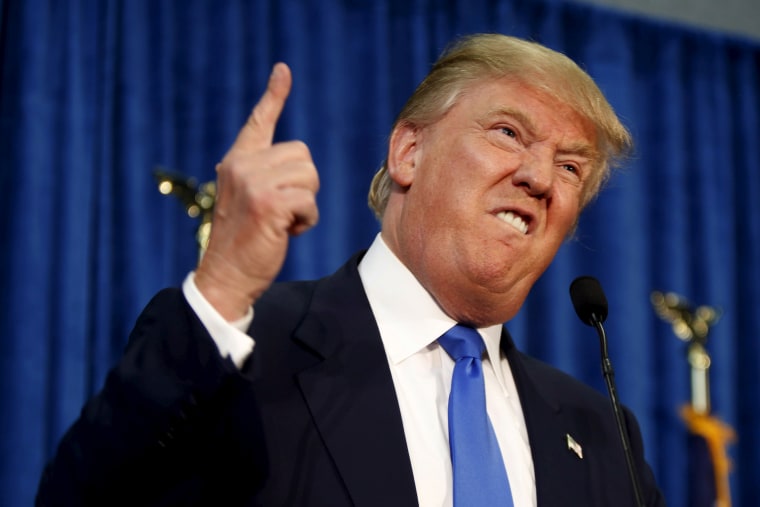Several women again went public this week with allegations that Donald Trump had harassed them before he became president.
Could Trump, who called the claims "false accusations and fabricated stories of women who I don’t know and/or have never met," be removed from office because of the allegations?
A number of high-profile figures in politics, the media and show business have lost their jobs recently as a result of allegations of sexual misconduct. Most of those working in the news and entertainment business have employment contracts with clauses that allow for their termination for cause or for bad conduct. Plus, discrimination law punishes those employers who do not act quickly to separate an alleged harasser from other employees. This incentivizes prompt remedial action by employers, such as suspension or termination of alleged harassers.
But the president is different.
His contract of employment is the Constitution. And it has a version of a "for cause" termination clause, similar to those in employment contracts. It's called impeachment. Reasonable minds can and do differ on what constitutes impeachable conduct. It is generally accepted among academics that conduct does not have to be criminal to be impeachable.
A more surprising concept is the reverse: Not all crimes are impeachable. Another historically (though not normatively) correct statement about impeachable offenses is that they are whatever the House and Senate say they are. If proven or provable, could sexual assault as a crime be impeachable as a "high crime or misdemeanor"?
It seems as though the correct answer should be yes. But it might not be so. The Framers discussed limiting impeachment to only treason and bribery, and later added the oft-debated catch-all phrase, including "high crimes and misdemeanors" — but the "high" in "high crimes" did not mean "serious," it meant "official."
Impeachment was considered by some Framers as restricted to political crimes and political punishments. It's therefore possible that a "personal" crime, one that does not involve any official action, might not be an impeachable offense.
However, there's a compelling argument that rape and sexual assault are so evil they should be impeachable even if the conduct occurred before the presidency, and regardless of whether they were prosecuted.
Still, Andrew Jackson killed a man in a duel before he was elected president. Though he was attacked as a candidate for dueling, he was never prosecuted and never impeached — though it was widely known he was a killer before he was elected. That's certainly a different situation than conduct that is discovered after a president is elected. Many of these sexual allegations against Trump were known before Election Day.
What about just plain sleazy conduct? That's probably not impeachable. No federal official has ever been impeached for purely sexual misconduct alone.
Even President Bill Clinton's impeachment was based upon perjury and obstruction of justice, and not sex. The next open question is whether the president can even be impeached for conduct that occurred before he took office.
In 2010, the Senate convicted federal judge Thomas Porteous of, among other things, corruptly accepting gifts from a bail bondsman when he was a state judge, despite his attorney's argument that Porteous couldn’t be convicted for conduct prior to being appointed to the federal bench. Porteous’s conduct did occur when he was a state public official, and not just a private citizen, however.
No president has ever been impeached based solely on conduct occurring before office. It's natural to assume that serious allegations of prior criminal or sexual conduct revealed only after a president is elected should warrant impeachment proceedings. But this is not necessarily true; it may not be true even for serious crimes or felonies.
Then again, technical definitions of impeachment may not matter if, as history shows, impeachable conduct is whatever Congress says it is.
Danny Cevallos is an MSNBC legal analyst. Follow @CevallosLaw on Twitter.
